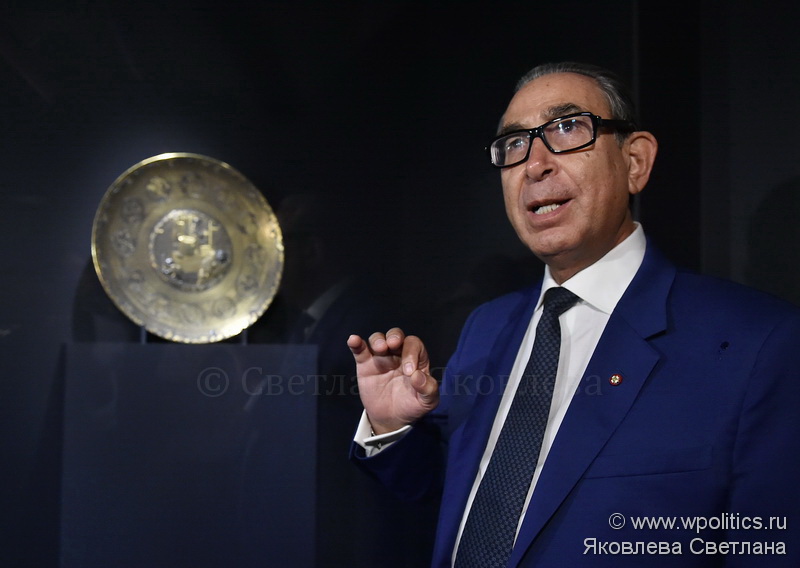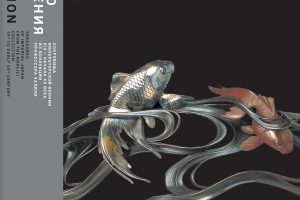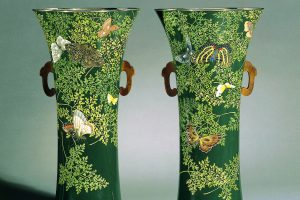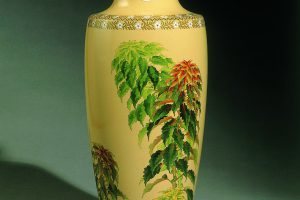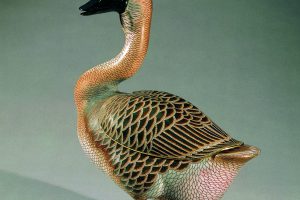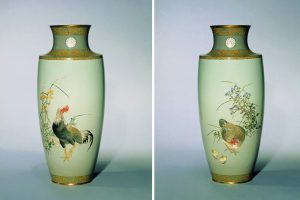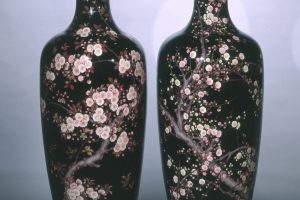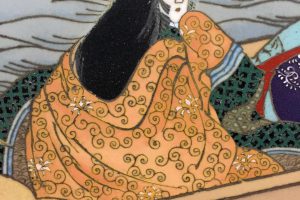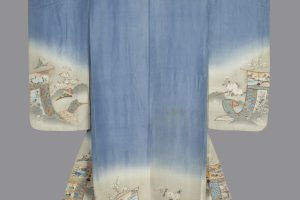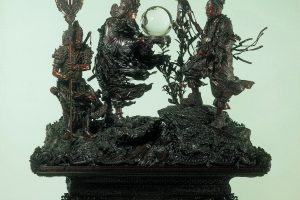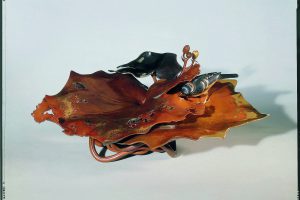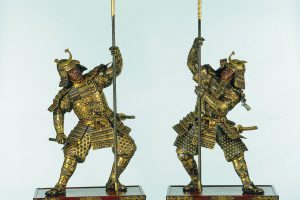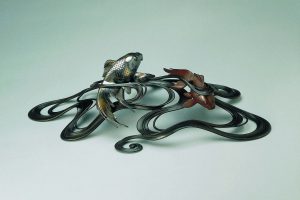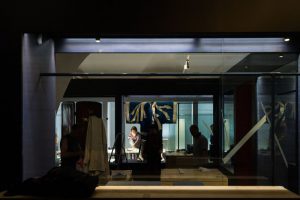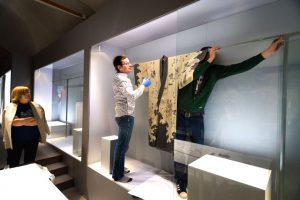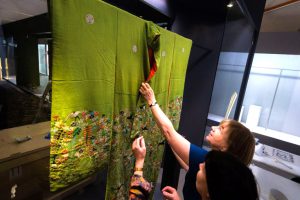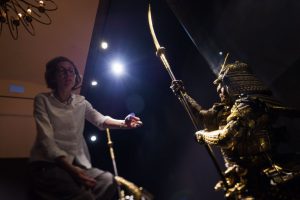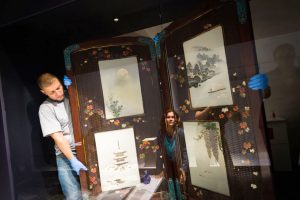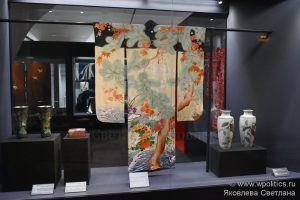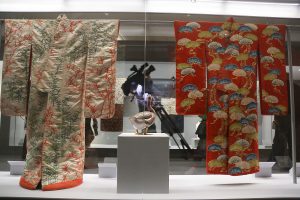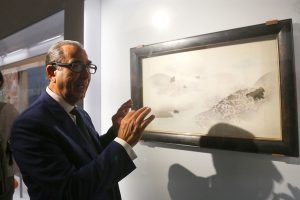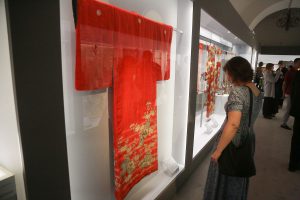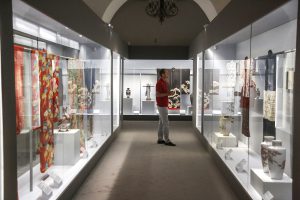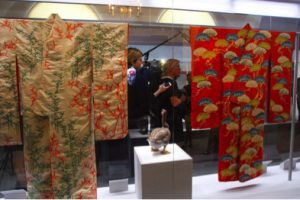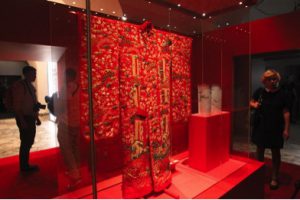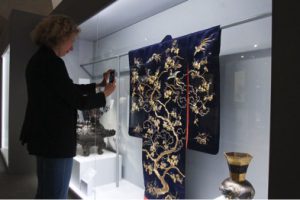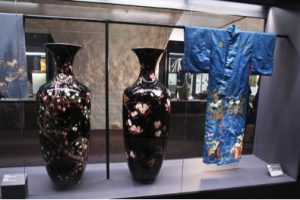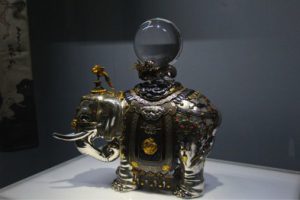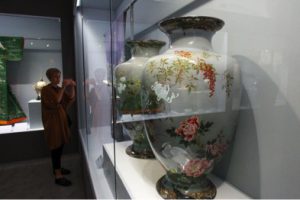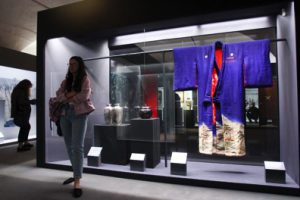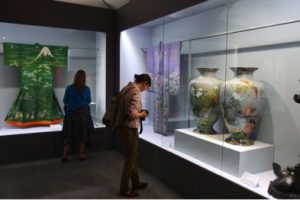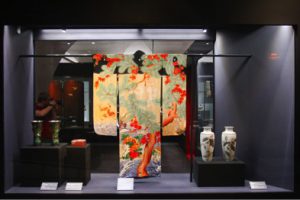BEYOND IMAGINATION Treasures of Imperial Japan from the Khalili Collection 19th to early 20th century 5 July 2017 – 1 October 2017
The Moscow Kremlin Museums opened this exhibition presenting Japanese applied and decorative art of the 19th to early 20th century from The Khalili Collection. A variety of world famous Japanese kimono, unsurpassed samples of silk embroidery, porcelain, metal and enamel artworks in all its glory are on display. Most of them were created by craftsmen-official suppliers of the Japanese Imperial court.
About ninety exhibits on show at the exhibition, one third of which are the kimonos of the Edo and Meiji periods, including the ceremonial ones. Created for women and men, young girls, children and even infants, these gorgeous kimonos were made of exclusive handmade silk produced in Japan and highly estimated imported fabrics. They are decorated with inimitable patterns typical for Japanese traditional art only, which are executed in techniques of batik, stencil and freehand painting, as well as finished with silk and metallic threads embroidery.
Unique combination of traditions and innovation characteristic for the Meiji period is clearly shown in works of eminent Japanese enamellists and metalsmiths, which are also on display. Starting from 1873, Japan presented pieces of this type and level at both national industrial exhibitions in Tokyo and at international exhibitions in Austria, the United States, France, Germany, Great Britain and Belgium. Such masterpieces were also used as diplomatic gifts. High-class items were selected for this purpose, since the Japanese government considered development of cultural and economic ties with other states its priority.
Each piece picked for display at the Moscow Kremlin Museums reflects both its high-class execution specific to this very period, and exquisite refined taste of customers and creators.

